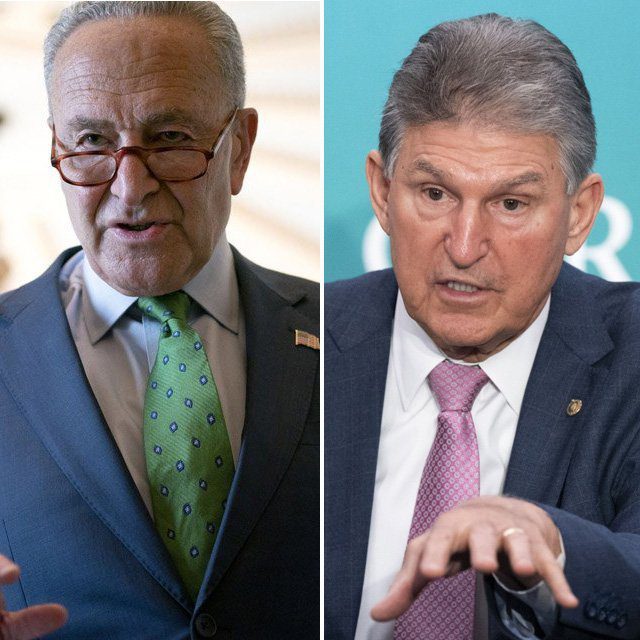Schumer-Manchin Tax Bill Is in Peril: Valliere

What You Need to Know
Sen. Kyrsten Sinema, D-Ariz., says she won’t vote for the bill if it eliminates the carried interest tax break.
She also wants the minimum corporate tax scaled back.
The CBO says the bill would cut deficits and net taxes once it is phased in.
The Inflation Reduction Act of 2022 is “in trouble,” according to Greg Valliere, chief U.S. policy strategist for AGF Investments.
Why? Senate Democratic leaders are now “scrambling to appease” Sen. Kyrsten Sinema, D-Ariz., who has made demands this week to colleagues in private negotiations that she “wants no carried interest provision or big corporate tax hikes — or she will walk, leaving Democrats one vote short of victory,” Valliere said Thursday morning in his Capitol Notes email briefing.
The carried interest provision, “like Rasputin, seemingly cannot be killed,” Valliere said. “Sinema wants it out of the final bill, and she probably will succeed.”
Also, the proposed 15% minimum corporate tax “may have to be scaled back to appease her.” Bloomberg reported that changing the tax provisions “risks irking” West Virginia Senator Joe Manchin, who negotiated the package with Senate Majority Leader Chuck Schumer.
“Manchin has said he is ‘adamant’ that the carried interest change remain in the bill,” Bloomberg reported.
The outlet reported Wednesday that Manchin told reporters he has not heard of Sinema trying to remove the carried interest provision. Hannah Hurley, a spokesperson for Sinema, declined to comment about any requests to change the bill, Bloomberg said.
Complicating these negotiations, according to Valliere, is “the likelihood that several provisions may have to be abandoned after the Senate parliamentarian rules on what can be considered under the complicated reconciliation process. At risk in the negotiations are the electric vehicle provision, capping insulin costs, leasing of public lands for energy production, and the tax provisions.”




